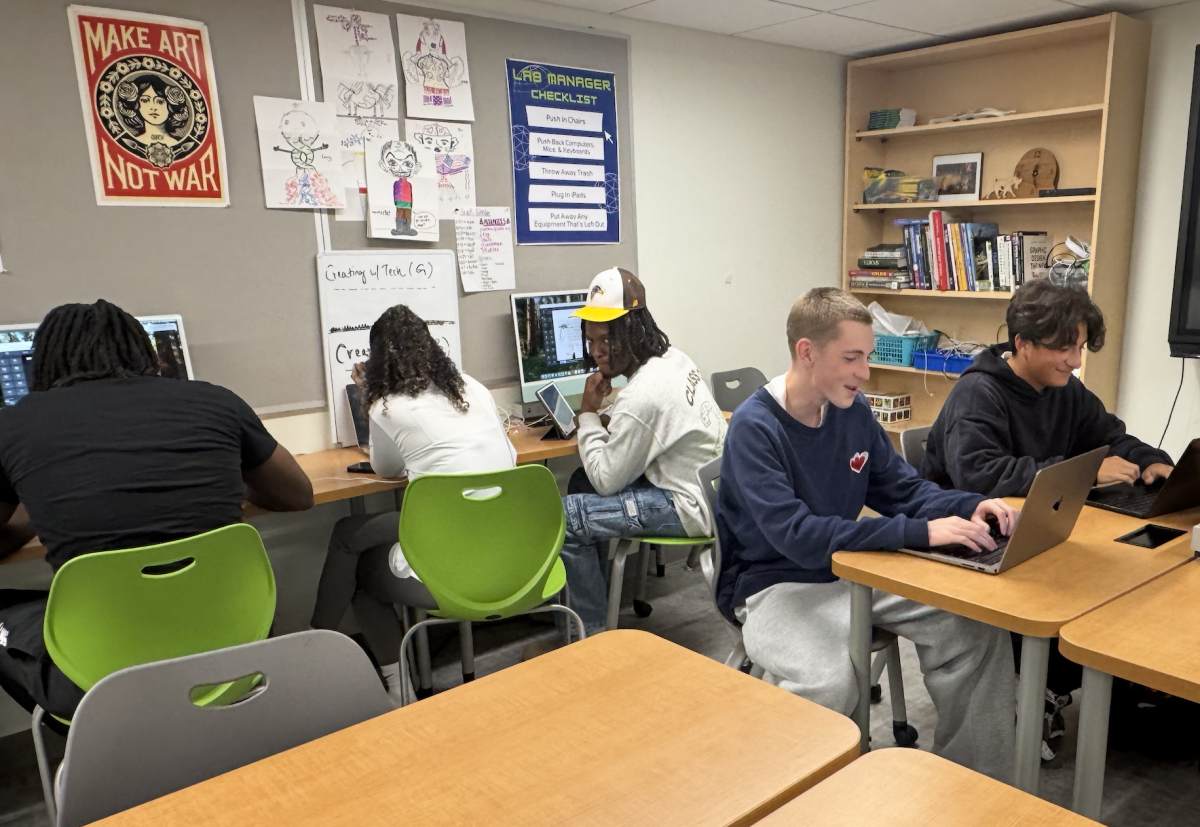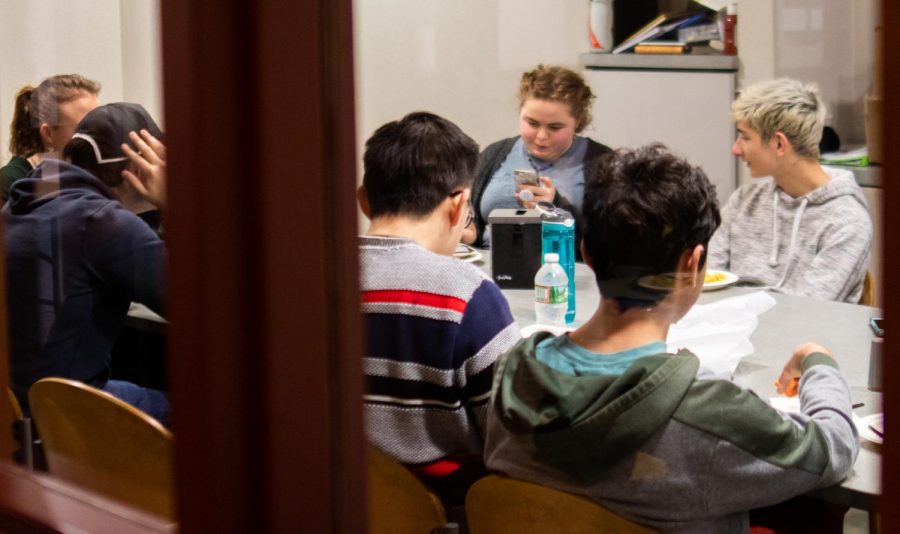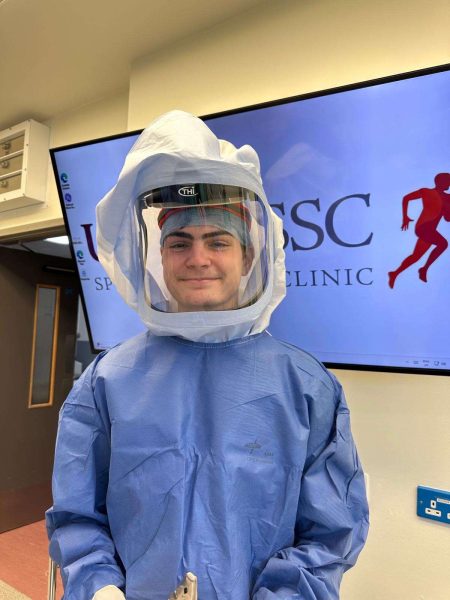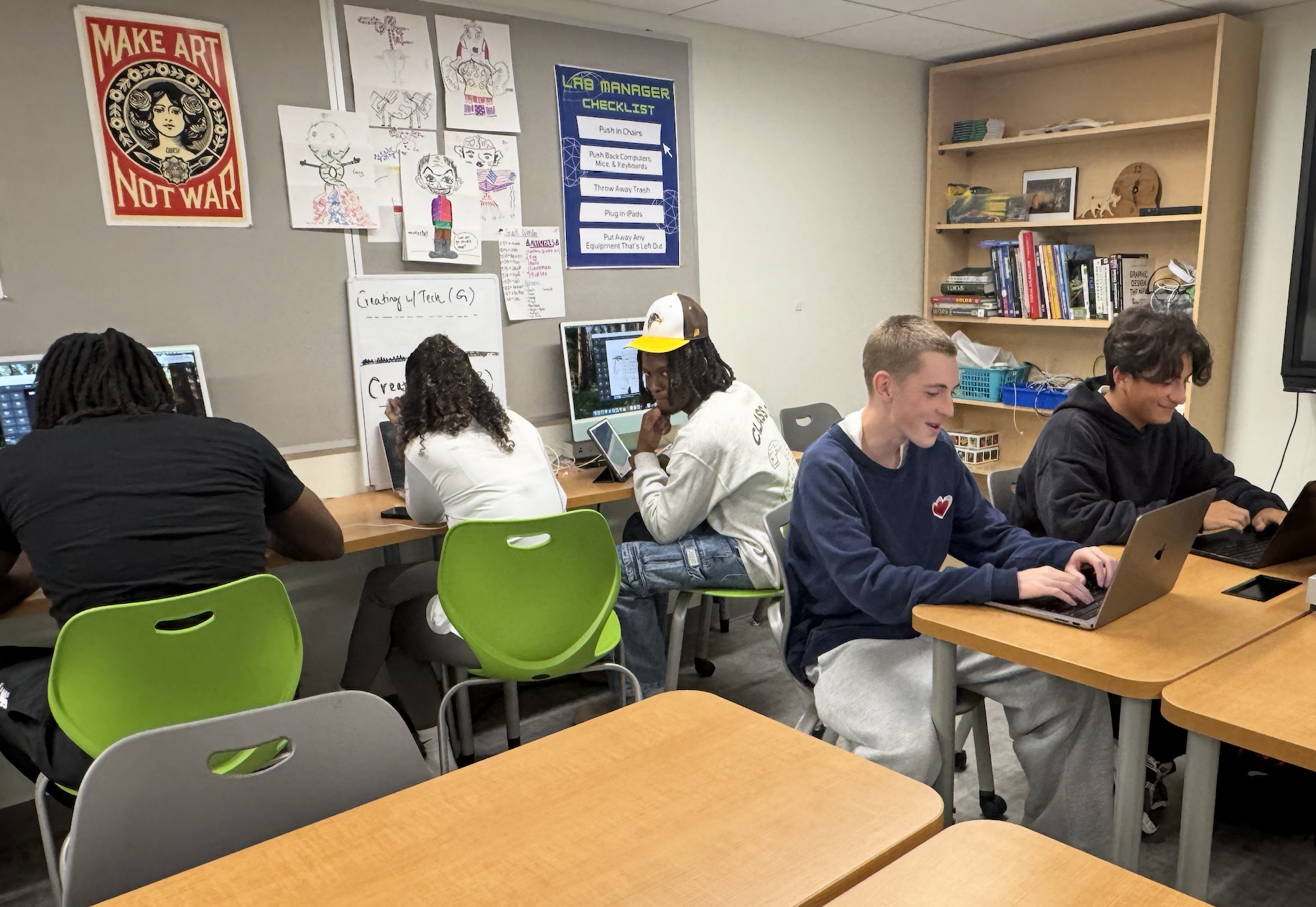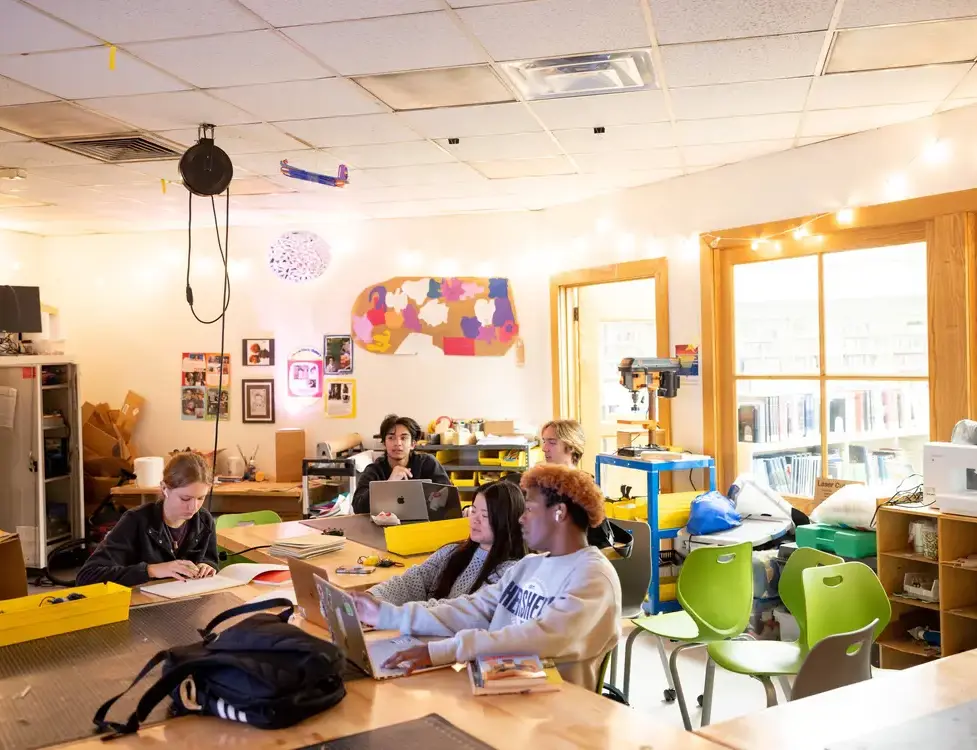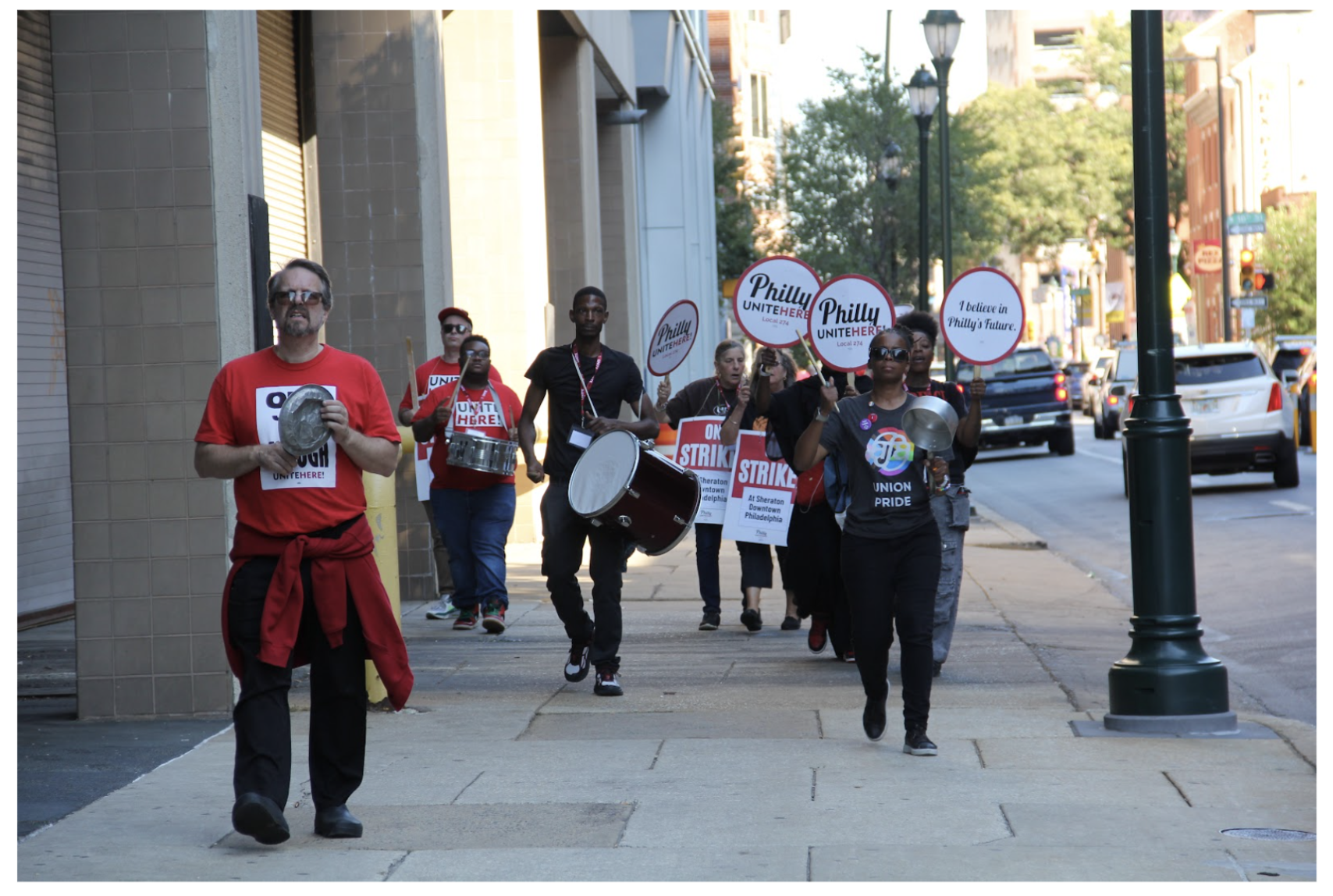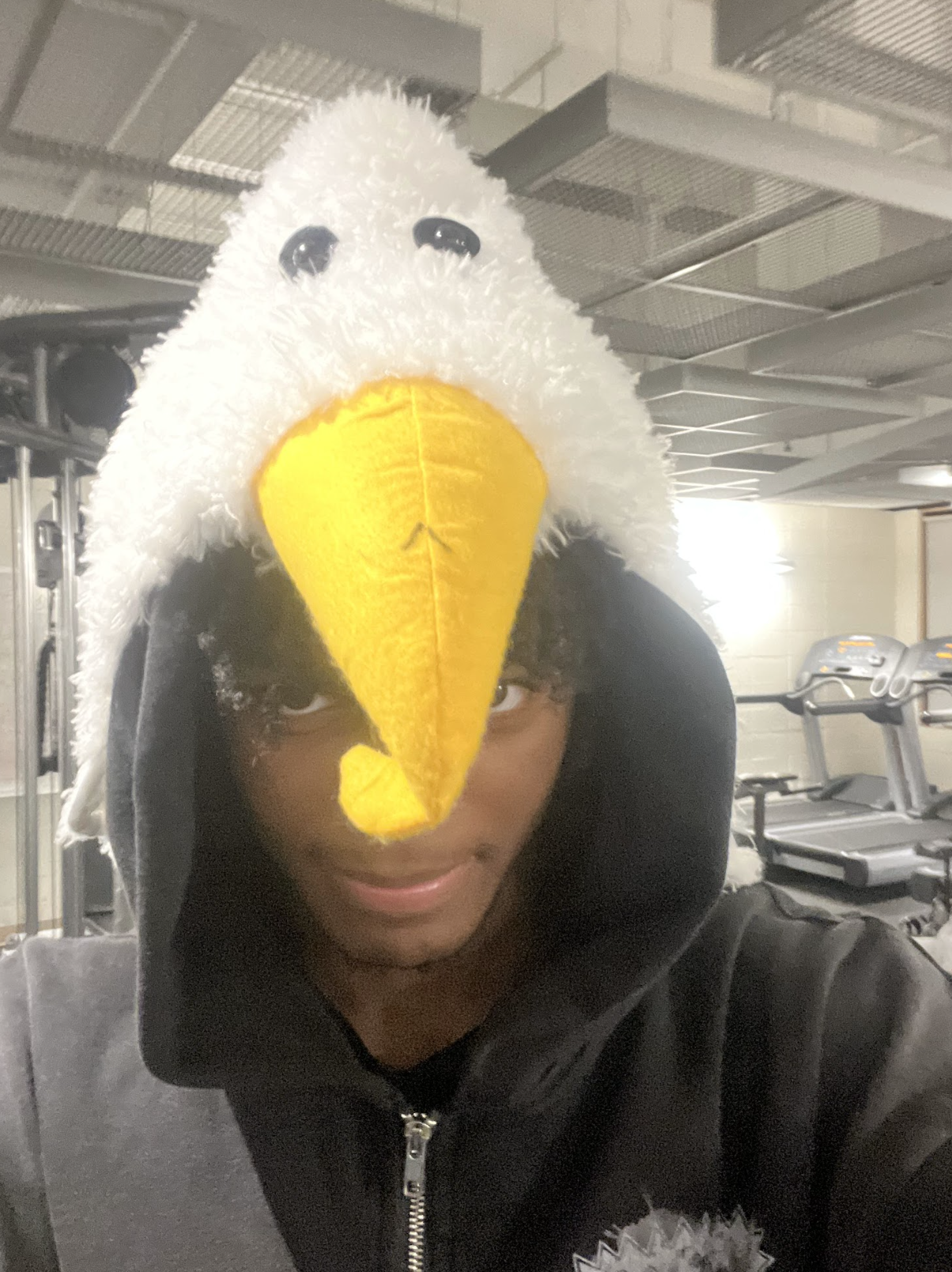Behind the Curtain of Student Government
FSS student government during a meeting
April 4, 2019
Every Monday, you see a group of students cramming into the lunchroom by the coffee corner, hijacking chairs across the floor and closing the door, as if a secret meeting is being convened. They are not a bunch of students organizing a riot against the cafeteria–quite the opposite, they are dedicated leaders who want to improve the school.
Student government is a group of elected officials who work on issues concerning the FSS community. Their job is to bring student voices to the administrators and faculty, propose plausible solutions, and sometimes even take the issues into their own hands.
An executive committee which oversees the operation of student government consists of president, vice president, and two other members. Lily May Muntean (’19), serves as the president of student government. According to her, “I lead the meetings by creating an agenda and facilitating the discussion. I also lead devotions and some assemblies. I also have the final say/approval on decisions. I am also the face of the group, speaking and writing on behalf of everyone.”
Claire McHarg (’20) who serves as a member of the executive committee said, “in addition to being just a representative, I’m in charge of keeping notes and lists for everything we have going on.” Camryn Harvie (’19), wrote, “My role in student government is Vice President. I work alongside Lili and help plan what our agenda is and help push others in the group to take an initiative to help get ideas off the ground.” Lastly, I (Muqi Guo) also serve on the executive committee, and I assist Cam and Lili’s work to my best capacity.
Each Monday, the student government members go into the room, get seated, and then go straight to business. According to Lili, “We sit together around the table and discuss the latest issues and initiatives. We often come to a consensus on decisions (the Quaker way). We work together to brainstorm, write petitions, and discuss how to put our plans into action.” The Monday meeting is the main way for student government to gather opinions and advice, have a productive discussion, and come up with a plan.
Normally, the student government has something concrete to work on, as Camryn Harvie describes a recent meeting: “We were addressing the issue of only having one microwave and what the steps are to get another one. We would then dive into subgroups to make a petition, and to contact the dining hall staff.” Although the microwave project is student government’s newest brainchild, it has many predecessors: the Canvas grading system (which was initially proposed in 2016), the feminine product basket in girl’s bathroom, and the recycling trash cans throughout upper school are just a few student government projects.
You might get the notion that student government just functions as a petition generator, which is not different from any individual who advocates for change in the school. What makes student government unique and gives them a distinct voice is that they have a close relationship with the faculty and administration. As Jim Miller, the Dean of Students stated, “Student government has provided the student voice when faculty and administration have needed student input; they bring student concerns to the attention of the administration so we can make the school a better place.”
Student government’s work for change doesn’t come without minor setbacks. As Erin Pratt, the Associate Director of Upper School, said: “Faculty and Administration take the recommendations from Student Government seriously, but the reality is not all recommendations can work given the school budget, schedule, and other restrictions.” However, student government’s voice is not unheard. As Jim puts it, “even when student government petitions have not resulted in changes, the faculty appreciate hearing student concerns.”
Unsurprisingly, students outside of student government often know little more than just the mere existence of this organization. Oftentimes, students don’t know who or where to go to when they have concerns or suggestions about the school. Drayden Tee (’19) said, “I don’t know what student government does.” Many students might have similar responses. Adrian Altieri (’19) said, “I do not know what is in or out of their control. What exact aspects of student life do they have a say in?” Kenny Park(’19) said, “As from what I have seen the student government body is an anonymous organization that has no effective lines of communication with any of the student body. Not only do I not know WHO the individuals are, but I [also] do not know how to get in touch with them, or relay my thoughts and ideas to them.”
Often times, student government gains insights within the group first before asking other students. According to Claire McHarg(’20), “We try our best to listen to student concerns and do what we can to address them, but when we haven’t had any outside input, there’s a lot of problems we’d like to address that come from within student government.” According to my experience in student government, this is normally how the student government operates.
Erin Pratt mentioned, “What I am not sure of is how often they seek out feedback and concerns from their classmates and the groups they represent. ” Chris Singler, the upper school director, also expressed similar concern, “I’m not sure if students who are not in student government know what student government does, discusses, or takes action on. ”
Student government is not flawless. Chris said, “I think there’s an opportunity to have student government broadcast their structure, decision making, actions, and more — in a more public and regular way.” Erin hoped the same: “I would like to see (or be made aware of if it is happening) more conversations and feedback sessions during class meetings. ”
Things are changing. Lili recently announced in student government that they are going to be more vocal among the student body. She said: “We’re not positive, but we’re going to start talking more at class meetings and possibly devotions.”
















